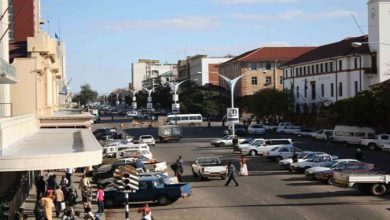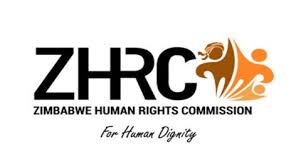
By Sheron Mirriam Tazvivinga
Patients on antiretroviral treatment (ART) in Zhombe are on the risk of defaulting on their treatment as they are battling to reach their health centres due to transport challenges.
This comes after the government in March placed a ban on all public transport, save for ZUPCO, as a means to curb the spread of Covid-19.
As a result, this has left several ART patients stranded as they are failing to reach their main health center, Kwekwe General Hospital.
The hospital is located 68 km from Zhombe.
One of the home-based care givers in Zhombe, Thembi Dabengwa confirmed this development.
“The lockdown has been affecting us badly as we can no longer access the health care centers especially Kwekwe General Hospital where we all get our medication. Transport is limited. Private operators are charging us exorbitant prices which we cannot afford since we are not working,” Dabengwa said.
This has increased the risk of patients on ART defaulting their treatment.
Apart from the transport hurdles, shortages of ARVs have been a blow to those who are living with HIV.
Zhombe traditional leader, Chief Wait Gwesela expressed concern over the shortages of ARVs as this was affecting the patients.
“Shortages of ARVs at the health care centers is also a major issue which needs serious attention as the patients are now at risk of defaulting their treatment. It is something that government needs to resolve,” he said.
In a report in June 2020, the then Health and Child Care Acting Permanent Secretary Gibson Mhlanga said the shortage of ARVs was due to reduced global production caused by Covid 19.
“This circular serves to notify you that we are experiencing a national shortage of Atazanavir due to reduced global production and delayed shipment from suppliers as a result of the Global Covid 19 pandemic,” he stated.
However, then Health and Child Care Acting Minister, Professor Amon Murwira dismissed the claims of the country facing a shortage of these lifesaving drugs.
“I do not know of any ARV shortages in the country neither have I received any statistics which unveil any shortage,” he said.
Shortages of ARVs coupled with the decaying health care system in the country, have led to the HIV positive people living in fear as their right to health is being compromised.
According to the latest Zimbabwe National AIDS Council (NAC) stats, Zimbabwe has about 1.3million people living with HIV and 89% of them are on ART.
Despite the Covid-19 pandemic, Murwira said government was working on ensuring that the prevalence rate remains stable.
“We are working tirelessly as the government to ensure that we attain the 90 90 90 goals this year despite Covid 19,” Murwira said.
The 90 90 90 goals set by the United Nations (UN) envision that by 2020, 90% of the people living with HIV will know their status, while 90% who are HIV positive will be accessing treatment and 90% on treatment will have suppressed viral loads.
Diminishing food security has also been a cause for concern, said Gwesela.
Zhombe is one of the areas in Kwekwe district which has received poor rainfalls in 2019 resulting in poor yields.
This has led to starvation.
“The lockdown has led to many families losing their income resulting in an increased rate of household poverty and food insecurities. Most people are not working, and this has seen most families facing starvation,” Gwesela said.
Daina Mhlotshwa a local home-based care giver also bemoaned the ignorance by the Department of Social Welfare as they were failing to accommodate ART patients.
Very few patients are receiving food aid from the Department of Social welfare.
Some of the patients she said, have been relying on remittances from their relatives in the diaspora.
However, this is no longer possible as the boarders are now closed and travelling has been restricted.
Mlotshwa added that the lockdown has unintentionally led to people divulging their HIV status and facing police harassment at police checkpoints.
“Some of the patients are often harassed by police on their way to Kwekwe General hospital and are forced to share their medical conditions with the police against their choices,” she said.
Kwekwe District Development Coordinator Fortune Mapungu said government is putting into place mechanisms which will accommodate the ART patients so that they can receive food aid.
“We have put plans to ensure that the elderly, and those suffering from chronic illnesses including those who are HIV positive receive food staffs from the Social welfare,” he said.
He also encouraged them to register at the nearby government centers so that they can receive food stuffs from the government.
“They should continue to register at the nearby government centers so that they won’t be left out,” Mapungu said.






